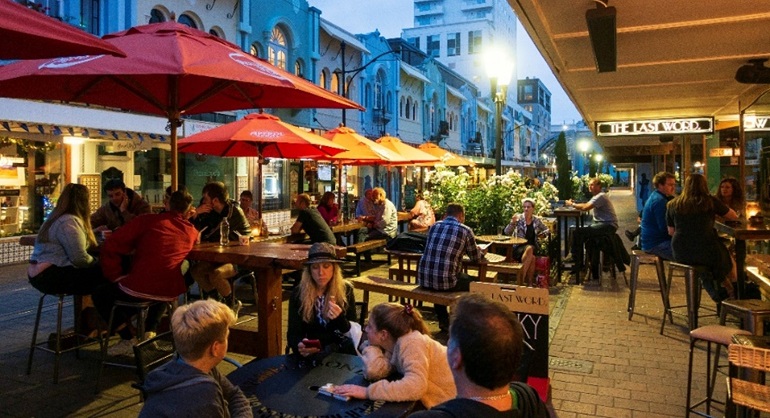Hospitality and tourism employment: Rebound and roads forward
On this page

This is the web version of the Hospitality workforce survey report for 2024.
Download the PDF here:
Hospitality and tourism employment: Rebound and roads forward [PDF, 9.2 MB]
As I venture further into te ao Māori, I see it as an essential way of connecting to people and places through storytelling. For me, tourism is a natural continuation of what it means to be Māori – to manaaki and to kaitiaki, which is to welcome guests and uphold respect for the natural world.
Hospitality is such a huge part of New Zealand and has a massive migrant culture. Some weeks I’d feel like I’d travelled the world with the breadth of people I’d met and experiences I’d had.
I have been in the sector for over 20 years. Tourism has the ability to be a huge enabler of sustainability, regeneration and conservation. It is a high energy and fun industry to work in that never has a dull day.
Respondent quotes
In this section
Executive summary
This report showcases results from a 2024 survey of hospitality and tourism employees and their employment conditions in New Zealand. The survey resulted in 1,032 valid responses from both managers and non-managers across all sub-sectors of hospitality and tourism.
Introduction
It is no secret that the hospitality and tourism sectors have faced unprecedented challenges since the arrival of the COVID-19 pandemic.
Demographic information
This section reports on the demographic profile of 2024 survey respondents (Table 1).
Employment and pay
This section presents pay data from the 2024 and 2022 surveys in 3 categories: hourly pay rates for front-line workers, hourly pay rates for managers and supervisors, and salary rates for those not on hourly pay rates.
Industry attraction and turnover intention
The most common theme from the open-ended questions regarding what attracted people to the industry was the sociable, people-based, and interactive nature of the work.
Developing and thriving at work
This section explores developing and thriving at work. Firstly, confidence, skills, and perceptions of training and development opportunities are examined. Then, thriving at work is also explored, comprising vitality and learning dimensions.
Respect, support, and satisfaction
Encouragingly, almost 3 quarters (74.3%) of respondents felt they were treated with dignity and respect by managers/owners, an increase from the 2022 He Tangata report, which showed a 68.8% agreement.
Safety, bullying, and burnout
The Maslach Burnout Inventory (MBI; Maslach et al., 2016) is a scientifically developed measure of burnout and is used widely in research studies around the world.
Environmental sustainability
For the first time in this report series, employees were asked about the importance of environmental sustainability when making employment decisions.
Conclusion
Hospitality and tourism are significant parts of the New Zealand economy. Examining the experiences of those working in and across hospitality and tourism is important to determine how the hosts to the world themselves are feeling on a range of employment dimensions.
Acknowledgements
The authors would like to thank the following people for their important contributions to this report:

